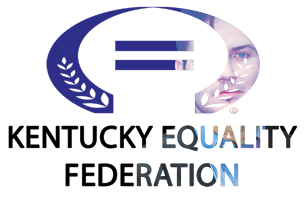July 19, 2011 – Kentucky, as we know only too well, plays a role on the national stage as the butt of many cruel jokes and condescending asides.
Who hasn’t felt that “oh no, not again” feeling when faced with yet another derogatory joke, study, survey, celebrity anecdote and so on which our entertainment and media industries gleefully cultivate?
Most recently, Lexington was stung when named by a men’s magazine as the “most sedentary” city in the U.S., apparently based on a rather dubious study that did little more than combine the number of video games bought with the amount of television watched.
If Lexington may on occasion be stung, then little Hazard has often found itself at ground zero for this form of national hazing.
In early June, all the ingredients for a perfect media storm were brewing there, the result of an incident at a city swimming pool in which two gay men (both with intellectual disabilities) were expelled by an employee of the city who cited the Bible while admonishing both men for what, in his opinion, was an excessive display of “gay” affection.
National and even international media followed, as expected, and there was no shortage of outrageous and patronizing coverage.
But what news sources failed to cover was the remarkable way in which those implicated (the city), those aggrieved (the couple), their provider/company and its staff (Mending Hearts) and those who helped advocate and educate (Kentucky Equality Federation) worked together to find common ground and a viable solution.
To us, the most compelling aspect of this story is the way in which Mending Hearts supported its constituents. They never shied away from the simple truth that their clients are gay. According to news reports, it was the agency itself that contacted both Hazard city officials and Jordan Palmer of the Kentucky Equality Federation.
From this, there is much to learn by nearly everyone involved in supporting those considered to have intellectual disabilities in Kentucky. It has been very disappointing to note how little the Kentucky Cabinet for Health and Family Services, various university-affiliated research and education institutions and related programs and agencies responsible for study and training in the field of disability have done in support of those with intellectual disabilities who are also gay, lesbian, or bisexual.
The silence here pretty much sums up our culture’s lack of resolve and makes the practice of discriminating against gay clients — not to mention gay caregivers — acceptable.
While it is probably true that most providers do their best to support gay clients and their staff, substantial numbers do not. In recent years, the Cabinet has courted faith-based providers, some of whom choose legally not to employ gay staff.
Discriminatory hiring practices are, of course, not limited to faith-based providers. But if employing gay caregivers is discouraged by a provider agency, are we really to believe that such agencies are capable of supporting gay clients?
Yet all providers have a mandate to do just that.
Earlier this year, we heard of a local agency that chose to separate two gay clients who shared a residential facility, rather than support the relationship. And recently a longtime case manager mentioned to us that she had never received any training on support of such clients. We believe this gap in education must be addressed.
Our thanks to those involved in the Hazard pool reconciliation for providing a wonderful example of how to support all people. This, in turn, invigorates and encourages the rest of us to stand up and do the right thing in our own day-to-day efforts.


